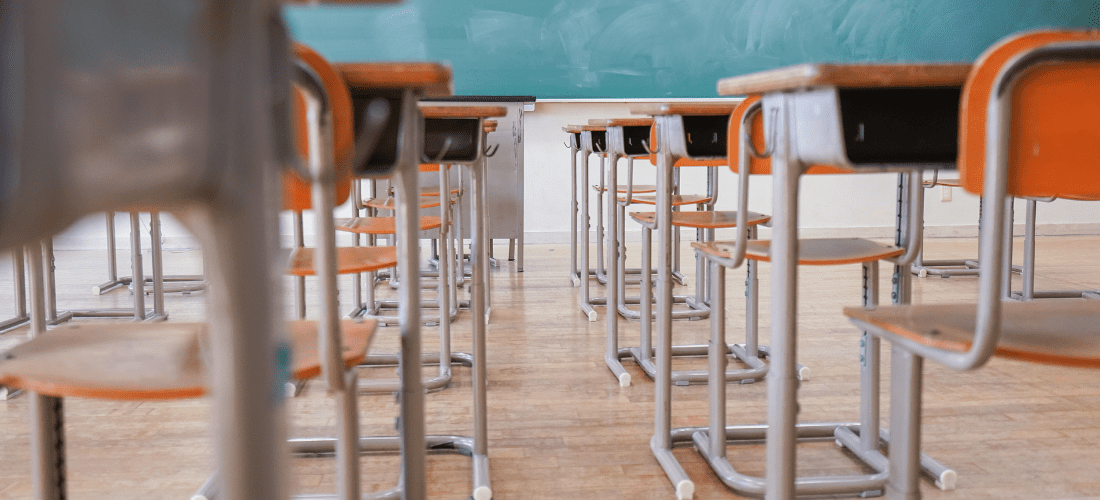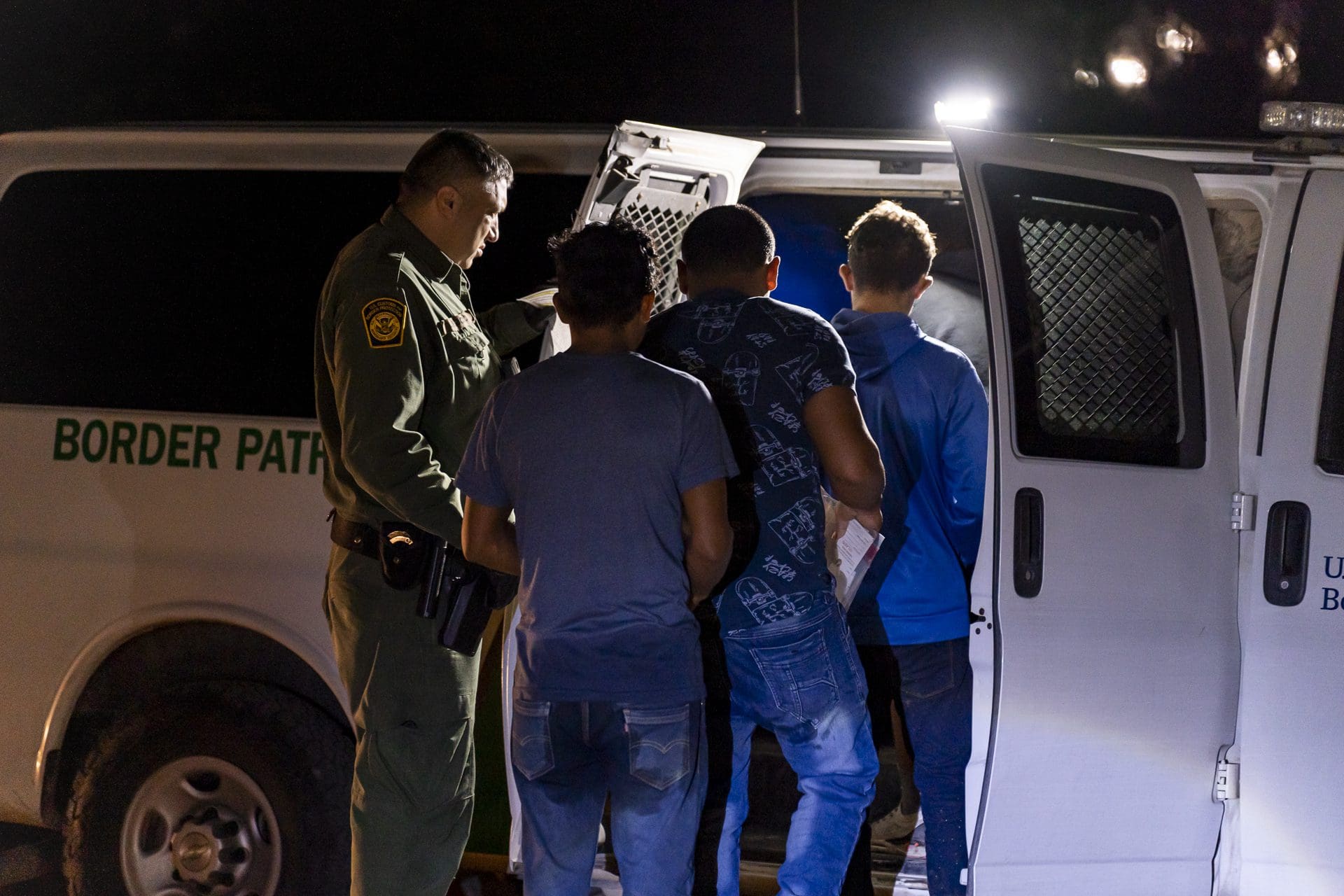Government schools’ priority is money, not students. Forced transparency is needed in order to change the culture.
In 1989, after Principal Joe Clark left New Jersey’s Eastside High School, it was widely reported that he warned “public education in this country is institutionalized child abuse.” His warning was targeting the corruption and poor quality of education provided by the government education system.
While education standards have continued to plummet, in Texas multiple signals indicate that Clark could be prophetic in another way.
Texas Scorecard’s previous investigative series examined the problem of Predators in Government Schools (Parts 1, 2, 3, and 4). In this series, Texas Scorecard has examined multiple allegations against government schools across the state of special education students being abused. These allegations include special education students and their parents receiving substandard service.
The topic of abuse in government schools was examined in season six of Texas Scorecard’s serial podcast Exposed.
Subject matter specialists say the allegations reviewed in parts one and two of this series are the rule, not the exception. Another expert points out that the education retirement system traps those who no longer wish to teach. Combined, these all support critiques that the most vulnerable children in Texas are being abused in government schools.
Statewide Problem
Debra Liva has worked as a special education advocate for roughly 30 years, beginning with advocating for one of her own family members. She got her paralegal certification to better understand the law and students’ rights. Now, she advocates full-time for students with disabilities. As a school employee at the time she advocated for said family member, Debra said she experienced firsthand how the system compels compliance, not accountability, from those within. “The more questions I asked, the more I became a target. I eventually quit my job…”
In an interview with Texas Scorecard, Liva shared troubling allegations of what she said special education students go through in the state’s government school system. She said she’s seen abuse and mistreatment of students, including physical abuse, the forcible cutting of hair, children sprayed with water bottles like dogs, and even kids being tied down. She also said she’s seen a lack of safety and accountability.
Liva spoke of one case in the Rio Grande Valley she’s currently dealing with. She said she had obtained recordings of a teacher allegedly engaging in “straight up abuse.” Liva said the recording shows a 150 pound woman sitting on a child between the ages of 3-5 years old, saying in Spanish that she would keep sitting on him if he didn’t obey.
When asked directly if special needs kids are safe in Texas government schools, she responded “Absolutely not.”
Texas Scorecard interviewed another special education advocate. For 27 years, Karen Mayer Cunningham has represented families who have children with disabilities aged 3-22 in 504 plans and IEP meetings. Cunningham said a 504 plan is for a student with a disability who needs accommodations but may not require special education services. It is based on Section 504 of the Rehabilitation Act of 1973, which is a civil rights law that protects individuals with disabilities from discrimination. A 504 plan lists accommodations for a student’s disability, while an IEP identifies a student who needs an individualized special education program to address their needs.
According to Texas Project First, “The IEP is created by a group of people who, in Texas, are referred to as the Admission, Review & Dismissal (ARD) committee,” and that parents “are a very important member of” this committee. “By law, the school district provides an IEP for all students receiving special education services. The IEP is based on a written plan, designed specifically for your child.” Its purpose, TPF says, is to prepare a special education student for life after school.
Cunningham does about 500 IEP meetings per year nationally. She has also done state complaints, mediations, due process hearings, and has around 100 open Office of Civil Rights complaints at any given time.
Texas Scorecard asked her directly if special needs kids are safe in Texas government schools. “I couldn’t say unilaterally that they’re safe. There are bad people at schools, there are bad people at church, there are bad people in the government, there are bad people at Target,” she replied. “I think that the little bit that actually does come out on TV, you can assume that that’s systemic.”

Cunningham used the example Lamar CISD where her client, a boy whose toe was crushed (as covered in part two of this series). “I don’t think that those things happen in isolation.”
She gave another example from a prior case where her side won in November 2022. She said the school district in question was Clear Creek ISD. Her client has cerebral palsy, is visually impaired, and is wheelchair bound. “Nobody was checking him for seizures, and he was so dysregulated he was biting himself till he bled, and nobody called the parents. They just let him suffer all day,” Cunningham said. “A lot of that is from his seizures, a lot of that is because he doesn’t understand what’s going on in the class, because they won’t provide him his special education services and visual aids. They just roll them out in his wheelchair, and he’s covered in bite marks [and a] bloody nose.”
Cunningham described the tense situation the parents are now in, and how anti-parent the system is. “[The] parents are now at a place [where] do they send their kid to school, where he’s going to be abused, where you’re going to be abused by neglect, where you’re gonna be abused by you don’t report the seizures, you don’t report that he’s biting himself?” she said. “We literally just run parents out of town, and we make the meetings miserable. We make the meetings long, we won’t answer their questions.”
Education attorney Janelle Davis out of Collin County shared similar concerns when asked if government schools are taking good care of special education students. “I don’t think I can say that public schools across the state as a whole are doing a great job in this area,” she said. “It’s highly dependent on the school and the teachers involved and the special education case manager. There are issues in general across the board.”
Davis also described some of the issues she’s encountered in her work as an education attorney.
One problem she shared was “a huge lack of qualified teachers” to work with special education students, whether they have a behavioral problem or a learning disability. Either the children are not getting the services they need in order to excel, or they’re placed in “centralized classrooms” with students who have a variety of disabilities. In these classrooms, one to two teachers are asked to serve a group of students who have a variety of different needs. “That’s a common problem that I see across multiple districts across the state,” Janelle said. “I think it’s worse than anybody realizes. I think part of the reason that people don’t realize the significance of the problem is because, a lot of times, what you’ll find is a family whose child has needs that the school district cannot or will not meet. They simply just exit the system on their own, and they find something, someplace else that can educate their child.”
When it comes to which is more predominant—a school unable or unwilling to meet the needs of a special education student—Davis said “I wouldn’t put one over the other as occurring more often. I think I see them both pretty frequently.”
The focus of much of this investigative series has been on abuse, but there have also been allegations of government schools not providing a quality service to these students and their parents. Liva told Texas Scorecard this is also a problem she’s encountered. She said she’s seen students not being properly identified and served, especially those with Down syndrome who are often misidentified, as well as inadequate Individualized Education Program (IEP) goals that are not specific or measurable.
Liva also complained of a lack of language services for non-English speaking special education students and families. “Or even worse, if [the student] do[es] speak English, but [the] parents don’t, they’ll put [the student] under LPAC.” The Texas Education Agency defines LPAC as the “The Language Proficiency Assessment Committee.”
“The role LPACs have in making assessment decisions for [English learners] supports appropriate implementation of both the content area Texas Essential Knowledge and Skills (TEKS) and the Texas English Language Proficiency Standards (ELPS),” a Texas Education Agency LPAC guide states.
Liva counters that LPACs hurt, not help. “They’ll put them under LPAC. Why? Because then they get to dummy them down,” she said. “We did a case in Houston, in Pearland. They tried to say that she wasn’t learning because English is a barrier. [But] in the home, [the] girl speaks perfectly fine English.”
She shared another experience from a case she worked on in the Rio Grande Valley. “Sometimes they don’t even have an interpreter in there, or they’ll get the school secretary. By law, they’re supposed to have somebody that’s qualified, not the school secretary.”
Liva raised the question of how: “How does that not interrupt with FERPA? If you’ve got the school secretary halfway interpreting and not telling you everything?”
Another problem she shared was ensuring special needs students are included in school activities and receive the same opportunties as other students.
The Law
Davis said that “the law requires that students be provided a free and appropriate public education that meets their unique and individualized needs and related services that meets their unique needs.” She explained that “related services” is “very broad,” and relies entirely on a case by case basis of the student’s disability, and his or her needs. “For some students ‘related services’ can be things like occupational therapy, or assistive technology for another student, it might be something completely different. It’s not a one size fits all approach.”
State laws in general can provide more protections for students but not less. So in general, it’s the same.
Davis also cautioned that schools are “criminalizing students” because of behaviors stemming from their disability. One example she gave was a student with “severe autism” who repeated to others at school a terroristic threat he saw on social media. This student was then charged with making a terroristic threat and violating the Student Code of Conduct.
“That student with autism doesn’t necessarily understand what they’re saying, or they’re repeating it because they’re trying to warn other people,” said Davis.
Another example Janelle gave was a student with “a documented disability that can cause outbursts” who is violent to other students, or teachers. “That creates tension because of course, nobody wants other students or teachers to feel unsafe in school. But at the same time, that student with special education protections also has rights.”
Liva agreed that she’s seen students pushed into the school-to-prison pipeline through unnecessary criminal charges. Davis said she and Liva have seen special education students as 10-years-old charged for criminal activity, or referred to an “alternative school,” all for having outbursts at school. “When that happens, the students have rights to what’s called a manifestation determination review, or an MDR … [which] is basically where the parent and their attorney or their advocate and school officials have to review the behavior that happened, and determine was it a manifestation of the student’s disability or not. If it was, the student cannot be subjected to the same discipline that they would be otherwise subjected to.”
Government School Greed
Liva made a connection between government school greed and the dangers special education students face. “They’re not safe physically, they’re not safe emotionally, they’re not safe academically, they’re not safe overall because it’s about the money,” she said. “It’s never about the child. It’s always about the money. It’s about protecting the school district and their almighty dollar.”
Davis pointed out that schools that serve special education students receive federal taxpayer monies for the purpose of serving those student. “If they’re accepting federal money, they have an obligation to meet the requirements of federal law, which again, require them to provide a free and appropriate public education that meets the needs of the particular student.”
State government schools also receive state taxpayer funding, and have the power to set and collect local property tax bills. Regularly, when the Texas Legislature is in session, they repeatedly ask for more taxpayer monies. Texans for Fiscal Responsibility noted in 2021 that state spending on government education had grown 60 percent in the past ten years.
When it comes to money, Cunningham said that she believes there’s not a money problem, but an “appropriation of money” problem. “In America, we don’t have money issues. What we care about, we pay for and what we don’t care about we don’t pay for,” she said. “I believe in everything in public education, from sports to drill team to everything else. But you can go to any school district in America and find a multi $100,000 stadium that’s used for seven home football games.” Cunningham continued to express her frustration. “I think it’s egregious that the people that are responsible for appropriating special education is state and federal level, have zero requirements for training and schools. I think tools that districts that perform low, the superintendent should be fired,” she said. “The parents that I serve naturally use one phrase to describe special education and that it’s a fight.”
Accountability Now
Texas Scorecard asked Davis, Liva, and Cunningham what is needed to change the government school system.
Davis gave two proposals. “Number one, we have to have more qualified teachers, and behavior specialists and interventionists that are trained to teach students with special needs. Number two, we have to have a public school system that has better checks and balances for parents to be able to hold them accountable when they are not meeting their child’s needs or when the school district is not meeting its needs under the law.”
She provided two options to accomplish the second proposal. One is pulling back the sovereign immunity government schools have. “That would allow parents to more easily be able to hold school districts accountable for their failures.”
The problem of government school immunity was also examined in the investigative series Predators in Government Schools, which covered Educator Sexual Misconduct.
“Another way to make the system work better for all students, including special education students, would be to have a different form of accountability, like an independent ombudsman or an independent inspector general, that a parent could take grievances to, and be confident that there is an objective outside third party watchdog, so to speak, that is reviewing those complaints and those grievances,” she said. “Someone that has no affiliation with TEA, that has no affiliation with the school districts, that understands the legal issues involved, but can be objective in deciding them.”
Debra Liva proposed Texas reinstate forced disclosure on government schools, specifically a particular process where teams would randomly go out and evaluate schools. The evaluation would be done by reviewing files (including special education student’s IEPs), meeting with parents and staff, and then issuing ratings and recommendations for improvement. Debra said this was replaced with school’s self-reporting. “They get these self-reports that everything’s great and hunky-dory,” she said. “We need to have more parental input helping make decisions.”

Davis agreed that more parental involvement is crucial. “Just across the board for all students, the more parents are involved, the better their outcomes,” she said. “In particular, with special education students, the more parents are informed, the more they’re knowledgeable about their rights, and their child’s disability and what would help them, the better the child’s outcome is likely to be.”
Cunningham offered multiple recommendations. First, mandate training and testing for all special education teachers, paraprofessionals, and related service providers, with requirements that continuing education hours be in special education topics. Second, add “bay windows” or windows to self-contained classrooms for more transparency. Third, enforce penalties if state and federal special education laws are violated, not just relying on complaints. Fourth, make the complaint and dispute resolution process more parent-friendly so they can easily exercise their rights. And fifth, state oversight of districts and consequences for districts that consistently underperform or violate students’ rights, such as firing superintendents.
There is another roadblock to accountability Texas Scorecard examined in part two of this series. In the July 2016 decision of the case at Highland Park ISD, hearing officer David Berger wrote that multiple allegations were outside the state’s Statue of Limitations at the time. At the time of the decision, Texas’ SOL was one year. On September 1, 2022, roughly six years later, it was extended to two years, matching federal law.
Liva said from her perspective the state SOL should be longer than two years, but it would be “difficult to get there.” “Most people today don’t even know they have rights and those rights are waived before they ever figure out that they have a problem,” Liva added. Davis also would like for it to be extended. “There are exceptions to the 2 years that can be argued, but yes it would be nice if it was automatically longer,” she said. “Most parents are not even going to realize that there is a time frame within which they need to file. Statute of limitations is something that lawyers think about, not parents who are advocating for their children.”
Trapped
In part two of this series, Cunningham discussed how often bad actors in education are shuffled around into different parts of the system.
Another key problem she brought up was what she called “golden handcuffs.” Specifically, those currently in education who want out. She blames the Texas Teacher Retirement System (TRS) for this. “If you and I get into a job, and we’re not really good, we’ll switch jobs, right? The Teacher Retirement System, which is national, their investments go solely to them. If [teachers] leave, they’re greatly penalized financially.” Cunningham said this traps frustrated people who don’t want to teach in a career they know they’re not suited for. “I have teachers all the time that tell me ‘I have seven more years of this.’ Why would I want somebody who hates teaching?”
School Choice Debate
During her interview, Liva said she doesn’t work as much with private schools. She says there are good ones, and some are not so good. “They’re able to work with children better, I think, and not every private school is going to be good either. Unfortunately, you get some of the problem children of parents who can afford to take their child [there] and say I’m done with my public school.”
Janelle Davis brought up school choice during her interview with Texas Scorecard. She said it’s “certainly a solution some folks talk about, but I don’t think it’s a complete solution that will help all of our students in state in the best possible way.” She claimed it has the potential to “widen the gap” of the “haves and have nots.” She also is concerned that it allows conservative state lawmakers “to claim victory” for passing school choice, while ignoring issues that can be fixed in the government school system.
“Most people are likely going to stay regardless of whether school choice passes.” She also said that the numbers she’s heard of how much the proposed program would cover-$8,000 to $12,000-would not cover the private tuition cost at some schools she said are “excellent for students with autism, behavioral problems.”
Tim Hardin, president of Texans for Fiscal Responsibility, disagrees with the idea that school choice will “widen the gap.” “Depending on how the school choice bill is crafted the opposite should occur,” said Hardin. “It should narrow the gap between the wealthy and impoverished, giving more opportunities to students in lower classes. This only helps the market fix many problems with the current corrupt and ineffective government school system.”
When asked, Debra Liva said she opposes school choice. “It doesn’t help homeschool parents. If you take money you will no longer have a homeschool. You’re going to be dictated on what to do and not [do],” she said.
Jeremy Newman of Texas Home School Coalition disagrees. “That fear has never come to fruition in any state that has ever tried [school choice]. Regulations have only gone down,” he told Texas Scorecard. “In order for regulation to happen, they have to pass a bill and get it signed. That’s the same risk we always face.”
Liva also claimed that “school choice won’t work for our special needs kids.”
Cunningham expressed objections as well. She said it would just spread the problems around rather than fixing them, since private schools also aren’t required to have the same training standards for staff. She believes the focus needs to be on properly training and testing staff within the public education system, as well as enforcing accountability measures, rather than shifting students around without addressing the underlying issues.
In an interview discussing education in general, Corey DeAngelis, executive director of the Educational Freedom Institute, told Texas Scorecard the advantages of school choice. “It gives families individual liberty to choose the school that works best for them.” He said it allows the money meant for educating a child to follow them to whichever education provider they choose, whether that’s a public, private, charter, or home school option. DeAngelis emphasized this empowers parents to find a school that aligns with their values.
As covered in part two of this series, one family became so frustrated they pulled their special needs child out of Highland Park ISD and placed him in a private school.
Principal Joe Clark, in his widely reported 1989 warning, called American government schools “institutionalized child abuse” due to its substandard education product. “It’s not going to change until we have a voucher system that gives parents the right to choose the schools for their children. We must have competition among schools[.]”
Conclusion
However one examines the problem, it is clear that action is needed to make government schools safe for special education students. “It’s across the state … it’s getting worse,” Liva said. “We need accountability.”
The chairs of the education committees in the Texas House and Senate are State Sen. Brandon Creighton (R–Conroe) and State Rep. Brad Buckley (R–Salado). Texas Scorecard contacted their offices and asked if they had received or reviewed complaints regarding the treatment of special education students in the state’s government schools, and if so, what are the nature of these complaints and are they investigating them. Additionally, both were asked if they are considering any proposals to make government schools more accountable and transparent regarding their treatment and teaching of special education students.
No response was received before publication.





